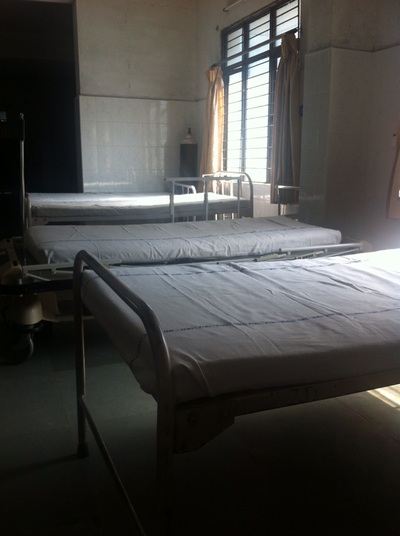As part of the initial supportive treatment, this woman had her hands tied down to prevent her from dislodging the IV lines, a Foley catheter was in her bladder and a feeding tube placed in her nose. None of these treatments, which are necessary, are pleasant for the patient. Worst of all she was aphasic from the stroke, meaning she could think thoughts but was unable to articulate or speak them. I imagined she felt similar (but worse) than I did the first day arriving at the hospital. I could talk but no one understood. I didn't know where I was going, who I was meeting, what time I was suppose to be ready in the morning, how to get the power outlets to work much less the internet or a phone to call home. The frustration over loss of control was palpable and the inability to express my self left me feeling helpless. My normal role as caregiver was reversed, I was useless. For me one for most difficult things was to sit back and let things happen, unknowing of what events were going to take place. I have traveled quite a bit and enjoy being spontaneous and going with the flow. The difference is I normally have the ability to express myself if desired, that first night for me was an epic fail as seen by the knock on my door every 15 minutes for 2 hours after I tried to say I was going to sleep. Obviously I should have brushed on my Telugu, the local language, before traveling.
For me the situation was and is temporary. I met those around me who spoke some English and I have been able to communicate, which makes all the difference. The power of language is priceless and a gift I take for granted. I will take what I have experienced here, both the medical knowledge and my feelings of frustration and helplessness I felt with loss of independence, to relate to patients and incorporate them into my practice. A reassuring pat on the hand, a hug, a smile, and taking that extra time to explain what is happening to a patient I believe can make just as much of an impact as any prescription I can write. In the age of computers it seems easy to get lost in the instant labs results, the ICD codes, and checking boxes off your to do list. I'm guilty of this just as much as the next resident. However, what has happened in the past is in the past and I can strive to make changes in the future. I will continue to make mistakes but that I how I will grow as a physician and how my patients will teach me.
Picture of Ward 31 which is all women patients with a 30 bed capacity and picture of the code cart.


 RSS Feed
RSS Feed
